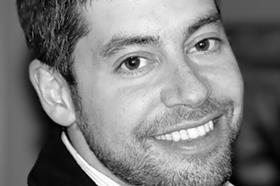This month’s CodeX FutureLaw conference, held at Stanford Law School in California, sought to include new perspectives on legal technology. It’s time to tackle tribalism
The key themes of this year’s FutureLaw conference produced by CodeX, the Stanford Center for Legal Informatics, were community, global and openness.

‘CodeX is a community, as well as an interdisciplinary research group,’ said executive director Roland Vogl. He added that FutureLaw is an opportunity for the best minds in legal education, law and technology to meet, and that all sessions being fully attended showed the spirit of openness and community he and his colleagues wanted to create when they started planning the event.
‘We made a particular effort to look beyond the legal tech echo chamber and include new, diverse perspectives,’ Vogl said.
Silencing the echo
Dharmishta Rood from Singularity University, Silicon Valley, opened the first keynote by inviting delegates to discuss what ‘community’ means for legal tech with each other. During this Dan Linna, professor of law at Northwestern Pritzker School of Law, CodeX affiliate and creator of the Legal Innovation Index, told me he believes a lack of community leadership was stopping a true legal tech community being founded.
Rood then talked about how legal tech can develop open and diverse communities. ‘Law and technology create many of the structures and norms of society,’ she said. ‘As lawyers and technologists, you have the power to create policies that facilitate diversity, equity and inclusion and connection. You can give back to the commons by creating data standards, open source and by caring.’
Rood’s references to multi-disciplinary collaboration and open-source data standards were followed up in other sessions. But this uplifting introduction was followed by questions from delegates in the audience about negativity on social media, and the legal sector’s resistance to experimental tech and independent thinking – which, in some cases, is reinforced by commercial interests.
Ashok Tiwary, technical lead manager at Google, reflected on the need to balance community with tribalism and creating communities without a sense of ‘us and them’. Rood’s response, recommending establishing community values, setting standards and goals, and cultivating inclusivity, empathy and compassion, reflected Linna’s observation about legal tech needing community leadership. This prompted Jean-Claude Monney, a delegate and former chief knowledge officer at Microsoft, to comment that communities and diversity of thought are at the heart of knowledge industries, including both law and technology. Tribalism runs counter to diversity of thought and, Rood also observed, data shows that diverse organisations have better business outcomes, in terms of innovative output and increased revenue.
Back to school
Professor Harry Surden’s Stanford Law School public lecture on artificial intelligence (AI) and law was an excellent prologue to FutureLaw. Held the day before CodeX began, Surden discussed automation’s impact on case law, and how algorithms could change legal decisions.

‘Where lawyers are acting like computers today, those tasks will be replaced by computers tomorrow,’ said Surden, ‘and abstract, conceptual and people-oriented tasks are less susceptible to automation.’
Surden advocated recognising AI’s value, potential and limitations, acknowledging that the ethical considerations of using AI creates for policy making, law enforcement and sentencing cannot be overestimated. He also advised against speculating beyond a five-year time frame, as the most significant changes brought about by technology tend to be incremental.
SELLING PROPERTY ON THE BLOCKCHAIN
Mishcon de Reya, in partnership with HM Land Registry (HMLR), recently completed the UK’s first digitised property transaction.
The firm’s prototype system used a spin-off of blockchain technology to securely transfer details of ownership of a residential property in Kent. The transaction was part of Digital Street – HMLR’s research and development project into making property purchasing faster and more efficient.
‘A completely rebuilt end-to-end system like this allows parties to rethink how property transactions are undertaken and at what stage they become legally bound to complete the purchase,’ said Nick Kirby, real estate technology specialist at Mishcon de Reya.
Kirby added that making transactions faster and more transparent will reduce delays and accelerate improvements in the property purchasing process.
Mishcon de Reya’s prototype is built on Corda – an open-source distributed ledger technology. The project aims to develop comprehensive digital transactions including due diligence and all contractual conditions.
Predictable responses
The ethical concerns highlighted by Surden were revisited at CodeX, where Stanford’s Professor David Freeman Engstrom moderated a panel discussion on the use of predictive technologies in the US criminal justice system. Responses were predictably sceptical. Chief Judge Lee Rosenthal of the US District Court, Southern District of Texas, commented that predictive tools worked best on the clearest cases, which were the easiest to decide. But judges’ core skills relate to evaluating believability, plausibility, reliability and expertise.
Other challenges highlighted by Elizabeth Cabraser, human rights litigator and partner at Lieff Cabraser Heimann & Bernstein, and law professors Pamela S. Karlan and Jonah B. Gelbach, included limitations on data access and how to ensure an element of choice around which laws and regulations can be applied to particular cases.
Open data and computational law
The day’s afternoon sessions focused on data and computational law. Pieter Gunst of Legal.io presented the CodeX Techindex, which tracks the development of legal technologies.
CodeX fellows Jameson Dempsey and Jorge Gabriel Jiménez introduced Stanford’s Legal Data Commons project. This aims to leverage publicly available data to promote access to justice. It was one of several projects around open data and computational law which invited participation from delegates.
Computational law projects included data scientist Amy Shoemaer’s presentation on the Stanford Open Policing Project, which has uncovered bias in police searches, and projects highlighted in the Government As A Platform panel, including encoding legislation to make it machine readable, to facilitate access and automation.
Let lawyers be lawyers
In his closing keynote, Julio Avalos, chief strategy officer at GitHub, observed that legal tech too often focuses on ‘answers before questions… products and pitches that sound cool and could make a lot of money, but that solve unarticulated problems or else unprioritised ones’. Avalos’s talk reflected on how the race to conform in commercial legal tech shows that innovators are really afraid to move beyond their comfort zones.
Avalos highlighted the connections between law, society and democracy. He sees technology and automation as having the potential to bring legal practices into line with modern business practices and make better use of lawyers’ time and intelligence.
‘Somewhere at the Venn diagram intersection of the work that lawyers don’t like to do, that clients don’t like to pay for, and that a machine or a script could do better or more efficiently, lie not just lower costs and greater efficiency, but, paradoxically, a key to let lawyers behave more like lawyers,’ said Avalos.
As a lawyer who once represented Facebook in a seminal case establishing the principle of data ownership, Avalos is qualified to talk about how lawyers are extending the power of the tech giants.
‘Armed with computers shooting out privacy policy and terms of service-shaped bullets, in-house lawyers – particularly within tech – have staged a coup of democratically elected legislative representation,’ said Avalos.
Avalos said that not much had changed since 2014, when he first addressed CodeX. But FutureLaw 2019 showed there has been significant progress in five years. Attendees heard about collaborative projects involving lawyers and technologists in academia, public policy forums and government organisations; experiences and insights from speakers from Singapore, New Zealand, Africa and Europe; and calls for participation in ground-breaking computational law and open data projects.
CodeX highlighted the best elements of the global legal tech community and recognised some of its key challenges. However, many delegates in the room were from law firms, corporate legal departments, commercial legal services and legal tech providers, so perhaps it would have been interesting to include insights from that community on how more open data, together with new tools and technologies, are disrupting and transforming legal operations and making legal services more accessible and affordable.
Acknowledgments
Roland Vogl and the CodeX team put together an insightful and inspiring programme for FutureLaw, and Harry Surden gave an interesting lecture. I would also like to thank Dan Rubins of Legal Robot in San Francisco for providing me with Voicea’s artificial intelligence transcription assistant EVA.



























No comments yet